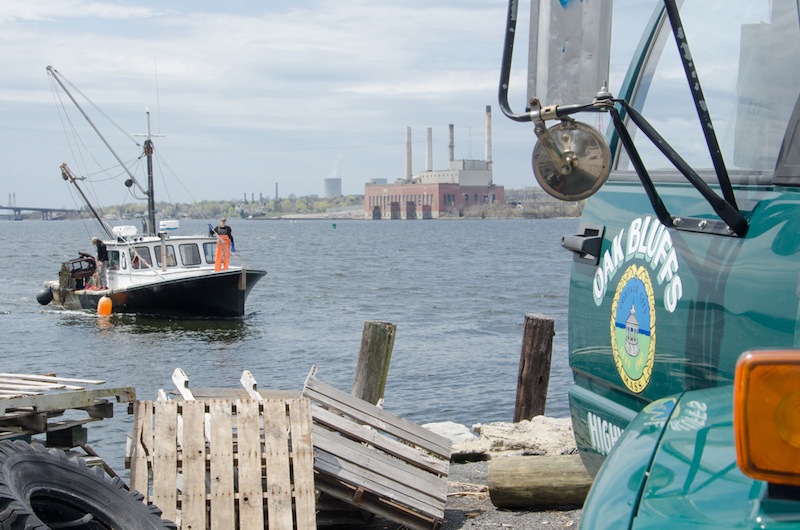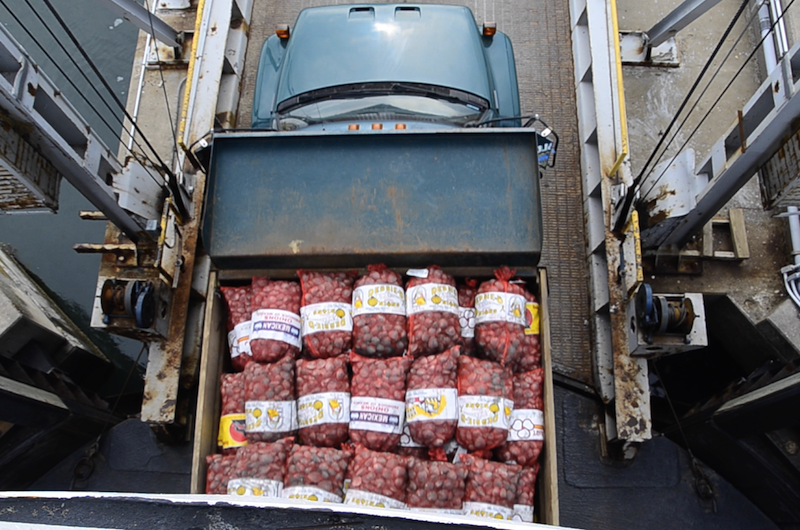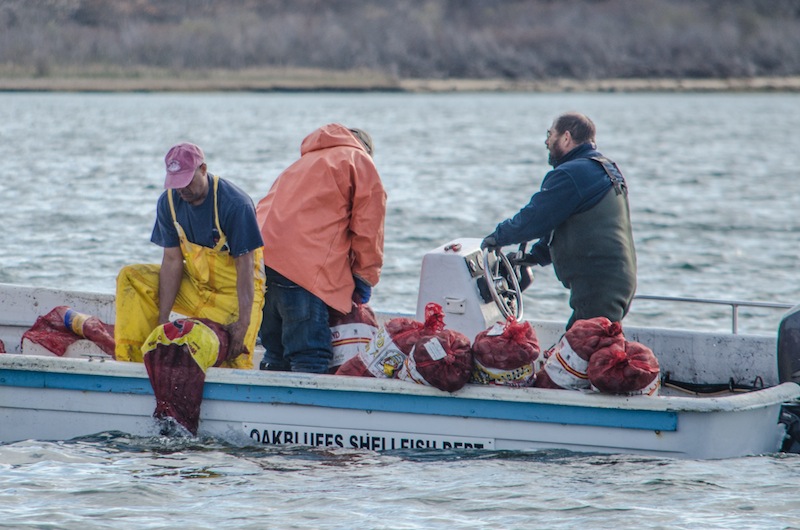Quahaug relay. It sounds like a track meet for mollusks.
Oak Bluffs deputy shellfish constable Jason Mallory sits patiently in a highway department dump truck on the Fall River waterfront. All morning, the well-worn fishing boat Skipjack has been dredging quahaugs out of the Taunton River, by special permit from the Massachusetts Division of Marine Fisheries.
The setting couldn’t be more industrial. There is an abandoned factory building on the opposite shore, high tension power lines spanning the waterway, and a coal plant in the distance. The Taunton River has been closed to shellfishing for decades. It is far too polluted to produce quahaugs that are safe to eat.
With Skipjack tied up at the dock, the captain and crew use the boat’s lift to swing bag after bag of clams up to the bed of the dump truck. Each bag weighs about 75 pounds. Once the truck is full, permits signed and payment squared away, the Oak Bluffs crew gets on the road, with just enough time to make the 3:45 p.m. ferry back to Martha’s Vineyard.
Once back on the Island, the truck makes the short drive to Sengekontacket Pond, where a bucket loader and a crew of hearty volunteers waits. Each bag gets loaded into the bucket, driven down to the beach and transferred onto a skiff.
Shellfish warden David Grunden steers the heavy cargo about 30 yards off the beach, and the volunteers scatter the quahaugs in the water.
The relay from the Taunton River to Sengekontacket Pond will play out for five successive days. About 600 bushels of clams have found a new home.
After three months of cycling the clean water through their shells, the quahaugs will have purged every molecule of pollution out of their systems. State regulators will test them to be sure they are safe to eat, but they have never found them otherwise. Nature always does its thing.
To be extra safe, the shellfish department won’t open the area to harvesting until the summer of 2017.
It’s hard but rewarding work.
“It’s fun, it’s a chance to get off the Island,” said Mr. Mallory.
Vineyarders and visitors will wade in to gather the bounty for chowder, stuffed quahaugs and other delicacies. It’s a cherished summer ritual.
“They’re having more fun than anybody,” Mr. Mallory said. “That’s the reward.”
Ray Moreis is one of the volunteers hefting the heavy bags onto the boat, and dumping them in the pond. The bags are heavy and awkward, but he says the perks of the job make it worthwhile. Next summer, he’ll be back out here digging them up.
“I know exactly where to find them.”
Video by Steve Myrick.






Comments (10)
Comments
Comment policy »